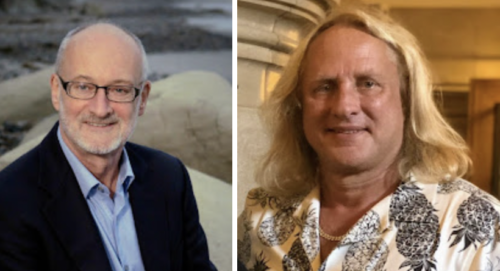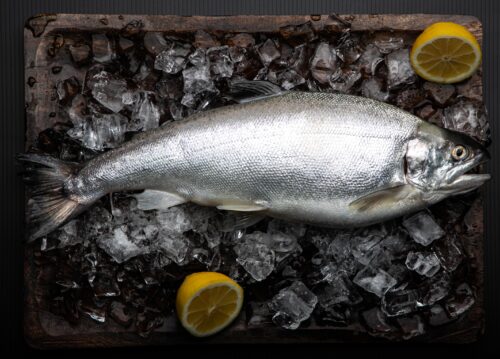LocalCoho, a land-based aquaculture start-up producing Coho salmon already being served at Nobu in New York and several other restaurants, has received multi-million-dollar funding from two seafood industry entrepreneurs, which the company will use to increase harvest capacity and continue to improve husbandry practices.
The two investors are seafood veterans Rodger May, owner of Pan Seafood, and Per Heggelund, a former owner and operator of a freshwater land-based Coho salmon farm in Washington state. The announcement did not state the actual amount the two have invested.

“Land-based aquaculture will play a major role in the future of American seafood,” says May. “LocalCoho is front and center of this emerging industry and its laser focus on quality and sustainability that is already yielding excellent results.”
Pilot farm
LocalCoho’s pilot farm is a 43,000-sqf recirculating aquaculture systems (RAS) facility in Technology Park Boulevard in Auburn, New York. It uses concrete raceways that, while looking like the traditional ones, actually are “mixed-cell raceways” – a type that has built-in “circular-motion virtual tanks.”
The technology, called Mixed-Cell Raceways (MCR), was developed by Barnaby Watten. LocalCoho consultant JLH Consulting of British Columbia adapted the technology. The consultant said the payoffs are the consistent distribution of high quality water throughout the rectangular tank and not just in the first half of it, as well as dependable distribution of oxygen and solids removal.

In a 2021 interview with this journalist, Phil Gibson, who was CEO and partner at LocalCoho at that time, said the “saturation” of the market with Atlantic salmon made Coho a natural choice for the company. “There’s hardly any Coho salmon [in the market]. Most of the Coho salmon is raised internationally, in Chile and Equador, and goes to the Japanese market and very little comes into the United States. So we really don’t have a lot of competition within the species. The wild Coho salmon fisheries have been functioning very poorly of late,” Gibson said.
He also said that the fact that Coho doesn’t have to have a saltwater component in the growth cycle added to its attractiveness because that quality makes it much simpler to raise.
The company’s plan at that time was to roll out twelve 2,000-tonne RAS facilities across the United States over the next 15 years.
Distribution deal
On Tuesday, LocalCoho also announced that the online grocer FreshDirect will launch retail sales of LocalCoho salmon online. FreshDirect, founded in New York City, works directly with growers, producers, and local food innovators.










